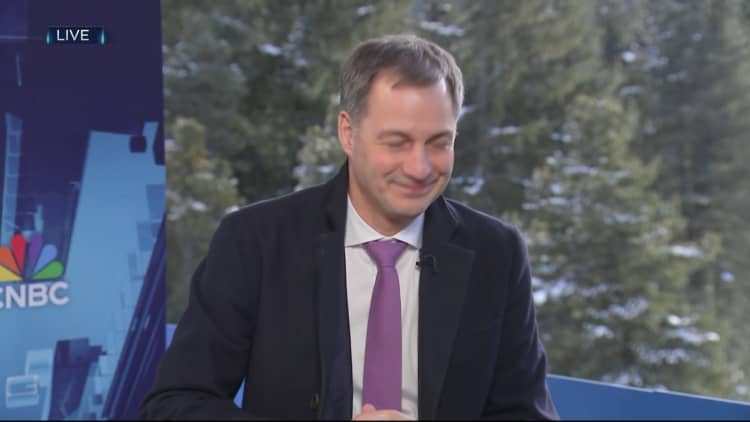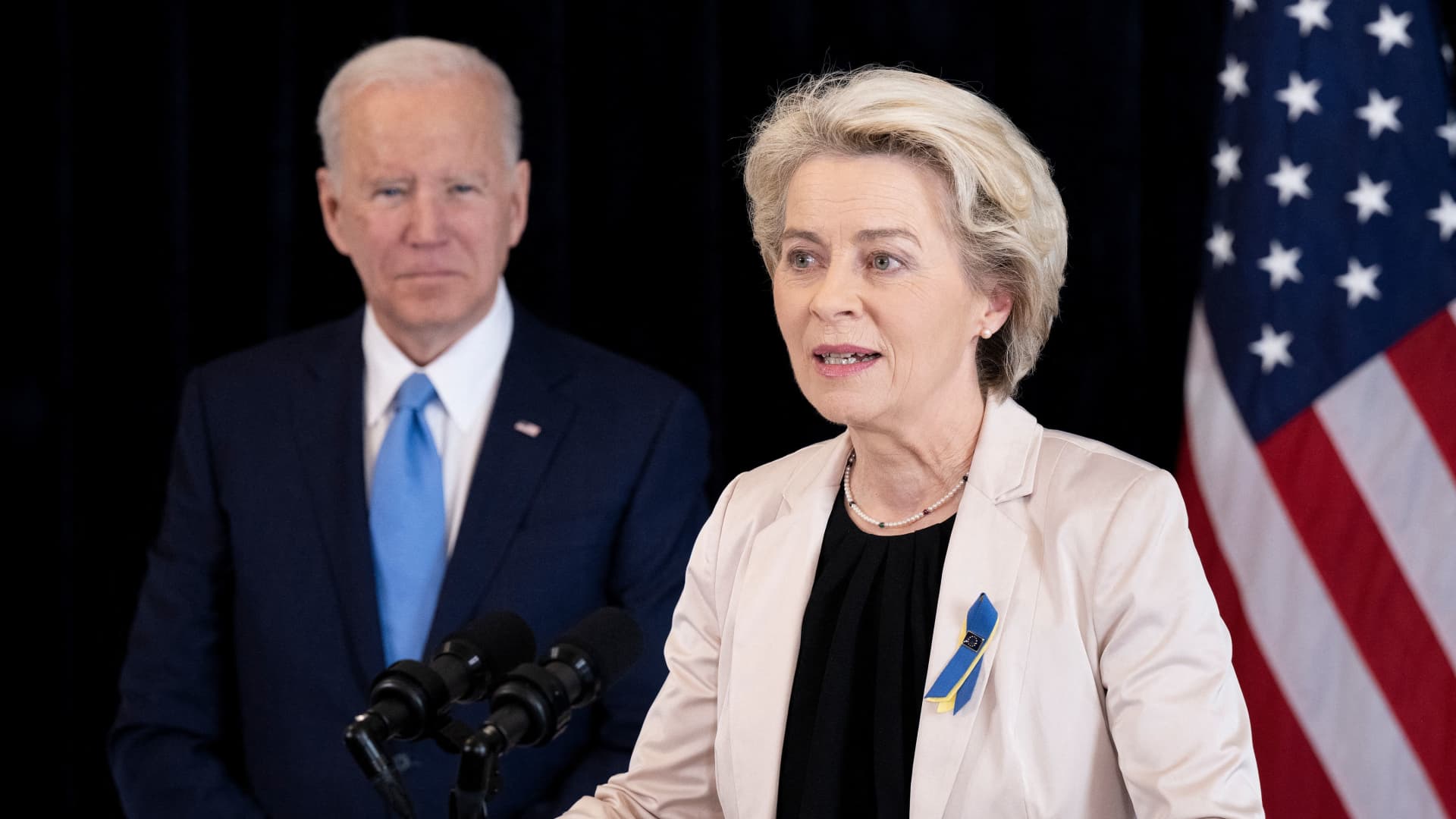
Trade tensions between the EU and the US are dominating the talk in Davos.
Anadolu Agency | Anadolu Agency | Getty Images
DAVOS, Switzerland — It’s the talk of the town. Transatlantic trade tensions are dominating conversations at the World Economic Forum this week.
On the one hand, European officials are saying they will come up with more financial support for European firms.
On the other hand, the business community is excited about green subsidies stateside and argue the EU needs to match what the U.S. administration is doing.
Ultimately, the pressure is on the European institutions — but the question is how far are they willing to go?
How we got here
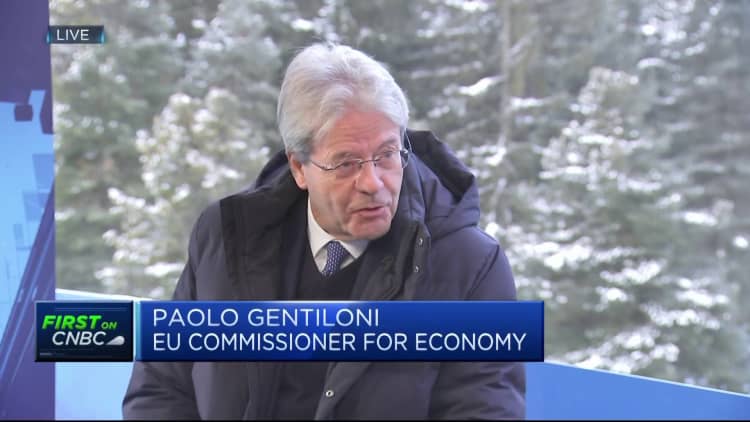
“It is a big elephant in the room … it has shaken up the European Union, the discussion between politicians, civil society and even industry,” Ilham Kadri, CEO of Solvay, a chemicals company headquartered in Belgium, said during an event in Davos on Tuesday evening.
“The reality is that the Biden administration incentivizes, when Europe regulates — to put it black in white,” she added.
The EU has been lobbying hard to ensure that European companies will be able to benefit from some of the tax incentives without needing to relocate, for example.
We should avoid a trade war.
Paolo Gentiloni
EU commissioner for economic affairs
The U.S. Treasury Department issued guidance in late December that would allow EU companies to benefit from certain credits without needing to alter their business models.
However, other guidance on how the legislation will be implemented is still outstanding, hence the continued conversations between European and American officials.
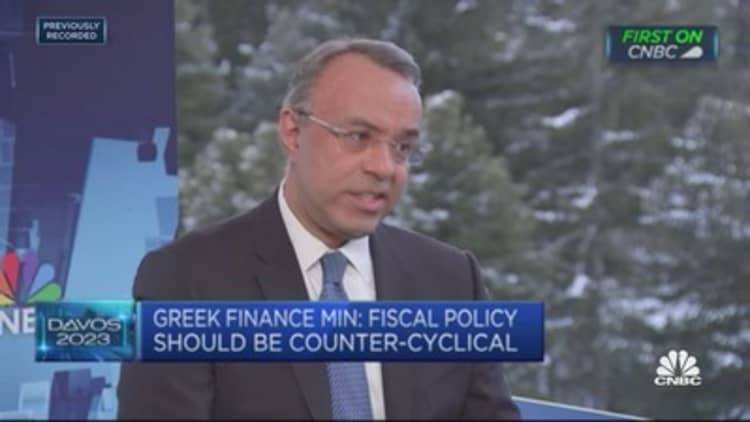
“We should definitely avoid a trade war or a subsidies war. At the same time we have to support our competitiveness,” European Commissioner for Economics, Paolo Gentiloni, told CNBC in Davos.
The pressure is on
Biden’s IRA has raised an internal debate in Europe where there is only one real consensus: The EU needs to come with its own plan to support the region’s competitiveness.
Spain’s Prime Minister Pedro Sanchez told CNBC earlier this week the EU needs to learn from the IRA and reform its industrial policies. Aditya Mittal, the CEO of ArcelorMittal, a steel firm, said at a Tuesday event in Davos: “We need to bring back this industrial mindset.”
“Matching the IRA is almost non-negotiable. If we don’t match the IRA in Europe, it is going to be very difficult for industrialists, for entrepreneurs, for investors to continue to build out the industrial infrastructure … there has to be a response,” Mittal also said.
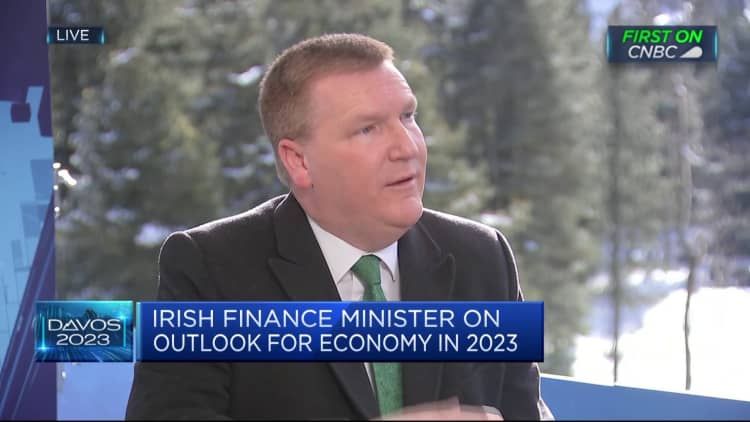
As such, the president of the European Commission, Ursula von der Leyen, announced a Green Deal Industrial Plan. Speaking on the main stage of the World Economic Forum on Tuesday, von der Leyen said the plan is to “make Europe the home of clean tech and industrial innovation on the road to net zero.”
One of the biggest uncertainties, however, is where will the funding come from to get this project off the ground.
One idea is relaxing state aid rules so governments can spend more on revitalizing their industries. The long-standing problem here is that Germany and France, Europe’s two biggest economies, have the fiscal power to do so, but the rest of the EU does not.
This could therefore bring fragmentation to the EU’s single market — the common area where there’s free movement of goods and people.
Speaking to CNBC Wednesday, Gentiloni said he is in favor of using state aid, but only “if this is very targeted and limited” support whereas it cannot disrupt the European model.
“We need a common response,” he said.
Without state aid, which is a national response, the EU as a whole needs to decide whether it will rearrange existing European funds to support European industry — or tap the public markets jointly and borrow new money to do so.
Germany seems vehemently against the idea.
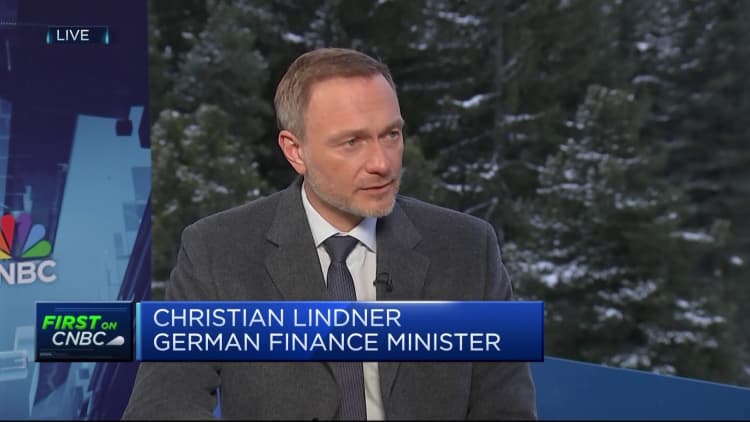
“We don’t need more public sector money,” Christian Lindner, the German finance minister, told CNBC in Davos. “We already have a lot of public sector money, which is already not used,” he added.
However, not everyone agrees with him. Speaking to CNBC Wednesday, Belgium Prime Minister Alexander de Croo said raising money from public markets “might be a good idea.”
“The funding needs to be something which is centralized and, indeed, tapping again into the capital markets might be a good idea and we could give a role to, for example, the European Investment Bank in managing those funds,” he said.
European heads of state are gathering in Brussels in early February to discuss how to support their industries.
De Croo suggested he can convince his German and other counterparts to look at raising funds as a solution.
“I have heard a lot of no’s on common funding in the past and in the end we did it, so very often it is impossible until the moment we do it. Let’s see how we can make something balanced.”
The EU decided to jointly tap the markets in the wake of the coronavirus pandemic in what was a historic moment for the bloc given the long-standing opposition to do so from the more fiscally-conservative member states.
